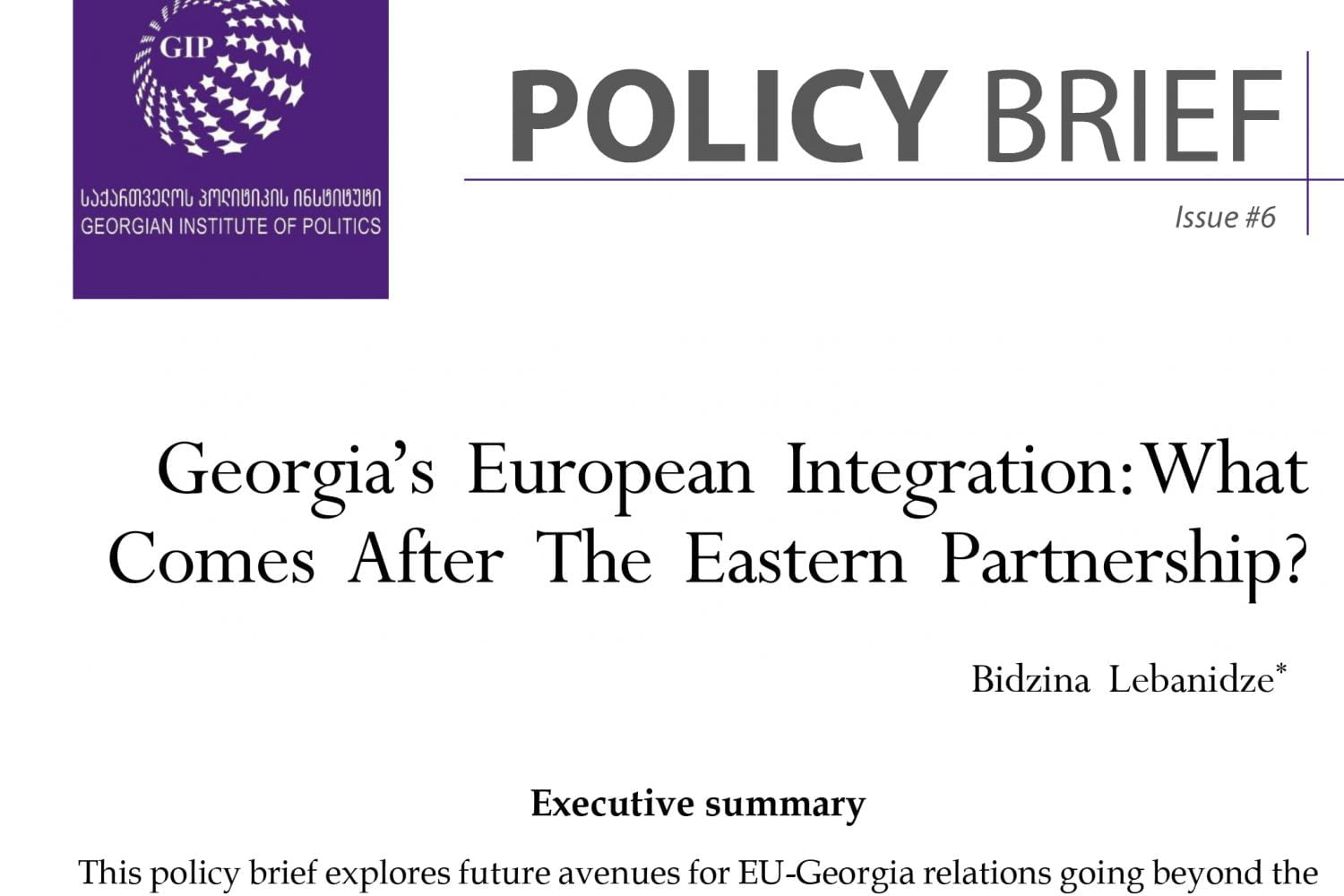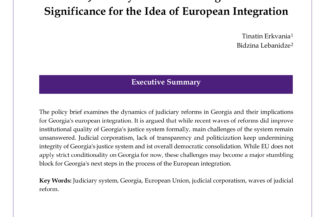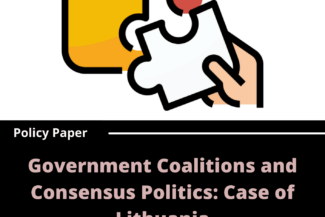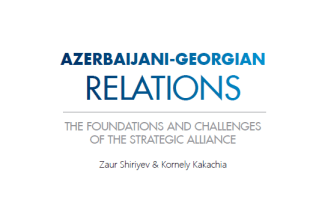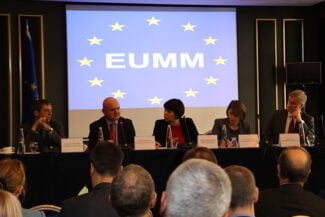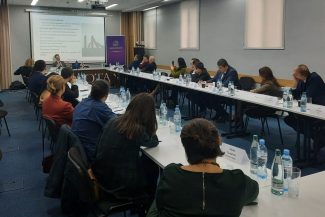25-04-2017
This policy brief explores future avenues for EU-Georgia relations going beyond the Eastern Partnership (EaP) but short of full EU membership. Enlargement fatigue coupled with economic and migration crises and the resultant rise of far-right groups puts additional pressure on the EU’s relations with its Eastern Partners. Georgia’s longtime goal of joining the EU is off the table, and the gap in expectations between what Georgia aspires to and what the EU is capable of offering is growing. However, the history of EU relations with third countries offers a number of creative solutions that go beyond the exhausted framework of the EaP initiative but stop short of full membership. This policy brief focuses on such intermediate solutions for enhanced integration that may guide EU-Georgia relations through the uncharted waters of the post-EaP era. The brief concentrates on three core areas of EU-Georgia relations: democracy and rule of law; economic integration; and security and military affairs. It is argued here that, whereas democratic consolidation is a precondition for further deepening of relations with the EU, Georgia’s government and society should temper their expectations regarding full membership in the Union anytime soon and instead concentrate on more immediate goals such as: completing Georgia’s integration into the EU single market by implementing labor mobility with the EU; and establishing and deepening institutional relationships with EU military and security structures.




